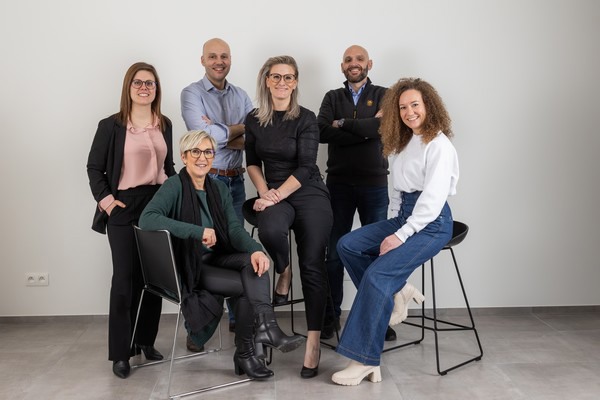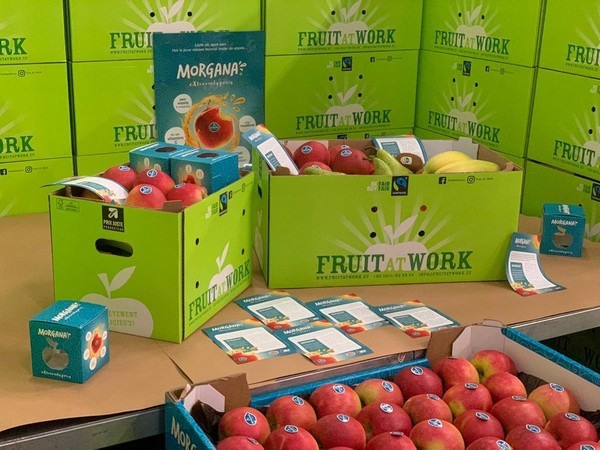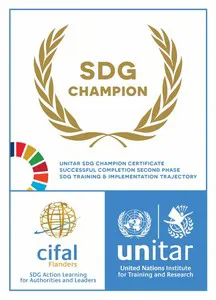At Fruit at Work in Belgium, trade is not yet quite back at pre-COVID levels, says Youri Aerts. The company's core business, as the name implies, is supplying fruit boxes to companies. "There's definitely still a noticeable amount of restraint; these are uncertain times for most people. Energy prices are going through the roof, and inflation is making things difficult. Plus, of course, many people are still working from home," he begins.
Nonetheless, the company managed to work well through the pandemic. "We've always had plenty of customers. Naturally, we focus mainly on offices and schools, so it was indeed tough," adds Yannick Aerts, who runs the company with his brother. "However, we were able to fall back on our many relatively small clients."
"That may well have been what saved us. That will slowly keep decreasing, though. But, it's easier to absorb losing smaller buyers than if one large customer's volume suddenly disappears. Rather ten 'small' clients than one 'big' one, if those volumes are equal."

"Surviving, rather than thriving"
"We also ensure we offered a diverse selection," continues Youri. "For example, we recently started with soup, but we offer things like smoothies and sliced fruit, too. We focus on what our business partners want. Here, quality and honesty take precedence. Fruit has become incredibly expensive."
"And because of supply issues from places such as Southern Europe, due to the drought, their prices keep rising. Yet, we always want to pay a fair price. Of course, this increasingly shrinks our margins, but these days it's a matter of survival for most people. We believe everyone who does business or is under contract with us should thrive, not just survive."
Fruit At Work focuses primarily on the Belgian market. "We supply some places in the Netherlands, but most are Belgian companies with Dutch branches. The Belgian and Dutch markets differ slightly. Our prices are a bit higher because we choose premium products and pay fair producer prices. Some of our customers consider sustainability important. Belgian consumer behavior is noticeably different and customers are generally more willing to pay our prices. In this, we, thus, cannot compete with price-fighters," explains Youri.

Not a great segment for organic products
The company does offer organic fruit boxes. "It's not a particularly large share, but we want to always give our customers that choice if they want it. However, organic fruits and vegetables aren't ideal for our segment. Reliably delivering optimal quality is critical to us. With organic fruit and vegetables, there's sometimes a limited supply of good quality products."
"Especially during the switch from the winter to the summer season. In April and May, for instance, finding high-quality organic fruit is problematic. So, most of our clients prefer conventional produce, also because these boxes are more varied throughout the year," says Youri.
One of Belgium's first SDG Champions
Sustainability is a high priority for the company. That is clear - Fruit At Work recently became one of the first companies in Belgium to achieve the United Nations SDG Champions label. That label is based on the UN's 17 Sustainable Development Goals (SDGs). These also form the basis of the VCDO (the Voka Charter for Sustainable Business).
Companies have to work on an annual action plan in line with five sustainable business pillars and the SDGs. If these businesses perform, at least, ten of this process' actions, Voka - the largest Flemish business network - give them the annual VCDO certificate. The additional labels: SDG Pioneer, SDG Champion, and later, SDG Ambassador, are extra recognition on top of the VCDO.
 In 2014, the closure of the Russian market caused Belgian pear prices to plummet far below production costs. When that happened, Fruit at Work opted not to increase its margins, but to continue giving local pear growers a fair price for their product.
In 2014, the closure of the Russian market caused Belgian pear prices to plummet far below production costs. When that happened, Fruit at Work opted not to increase its margins, but to continue giving local pear growers a fair price for their product.
One that not only covers costs, but allows growers to not simply survive. This line was continued throughout the entire operation. Among other things, Fruit At Work is also Fairtrade certified, they helped the startup Green Delivery begin CO2-free transport in the region, and they supply a healthy food at school program, OVL.
This Flemish/European project encourages schools to offer a healthy snack to students once a week, thus establishing healthy eating habits. Schools participating in the OVL project can count on a subsidy from the Flemish Government. Fruit At Work is happy about that, since it makes the project completely free for the schools. "That subsidy is just enough for us to cover costs, but we're okay with that," admits Youri.
"We want to be a trendsetter in the fruit delivery world, and then, after getting those first two certificates, it makes sense to go for that last one, SDG Ambassador. We enjoy sharing our knowledge with other companies within and outside our sector. They then, too, can grow sustainably. We certainly don't want to shut our doors and keep our expertise to ourselves. We're more than willing to help anyone who wants to make the same choice we've been making for years," Yannick concludes.
For more information: Fruit At Work
Fruit At Work
1154 Senator A. Jeurissenlaan
3520 Zonhoven, Belgium
Tel: +32 (0) 118 25 844
Email: info@fruitatwork.eu
Website: www.fruitatwork.eu
